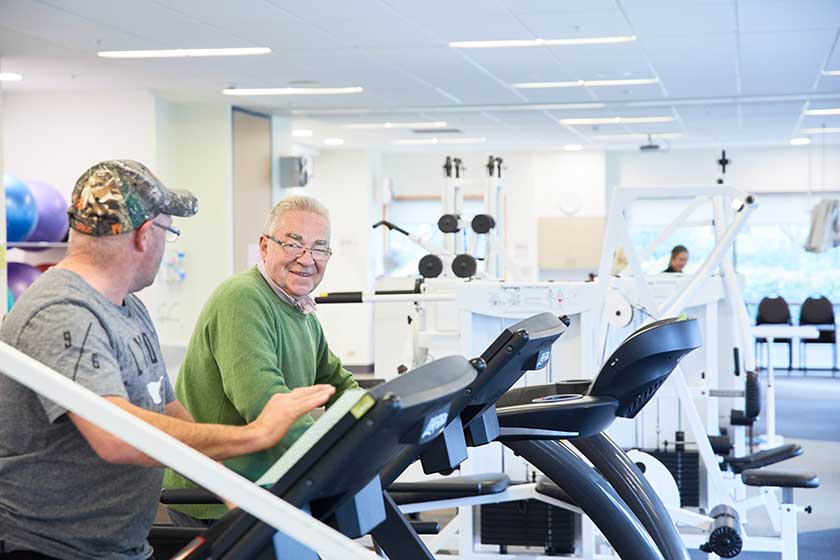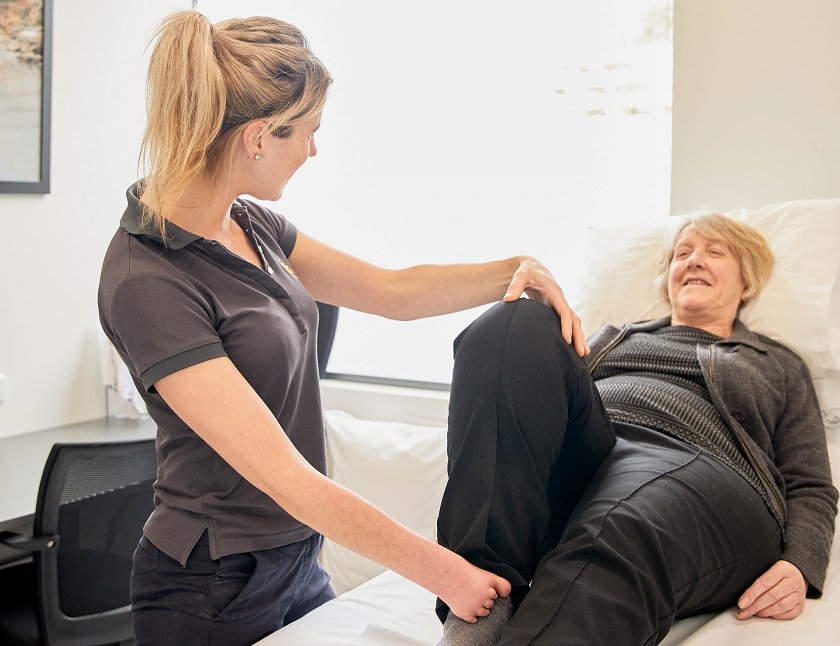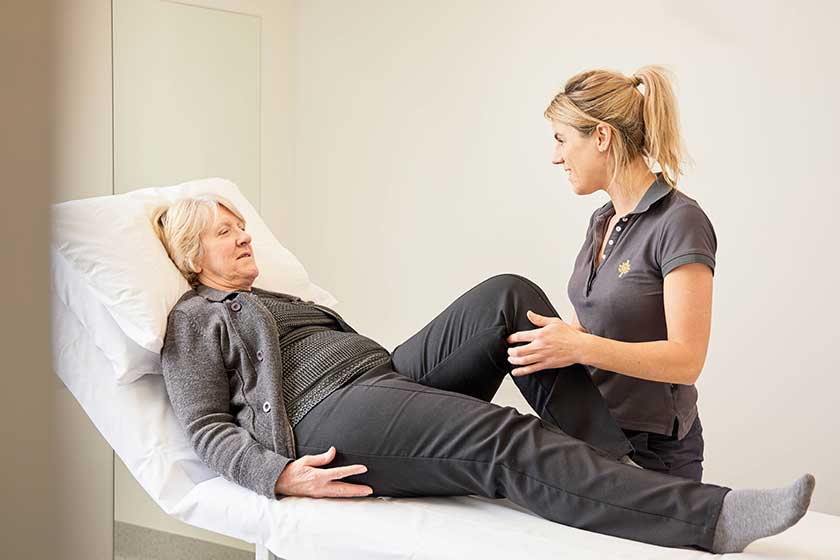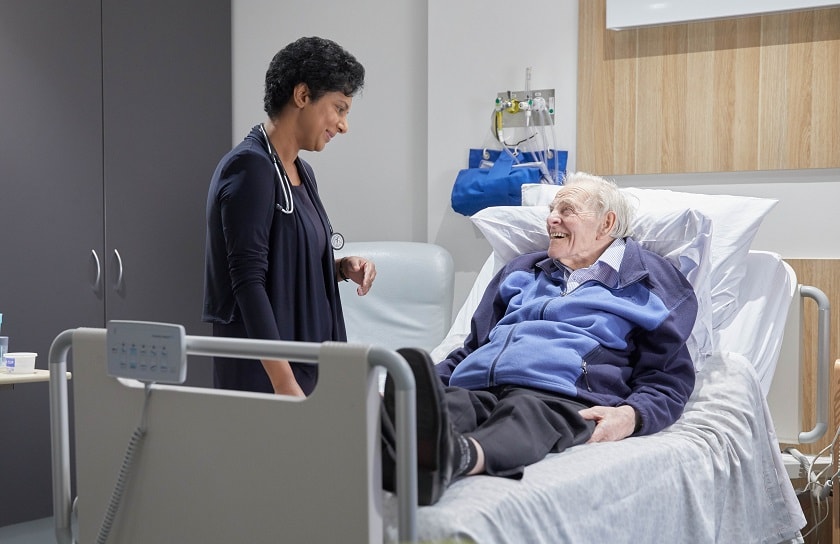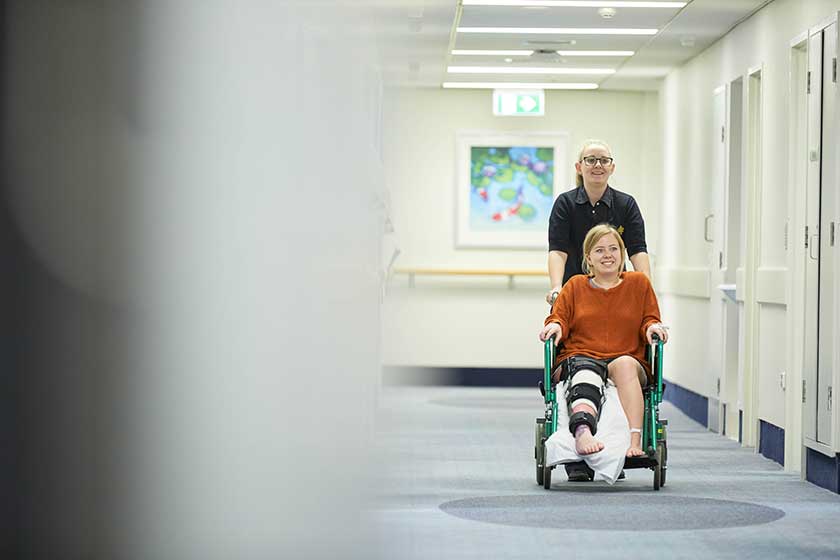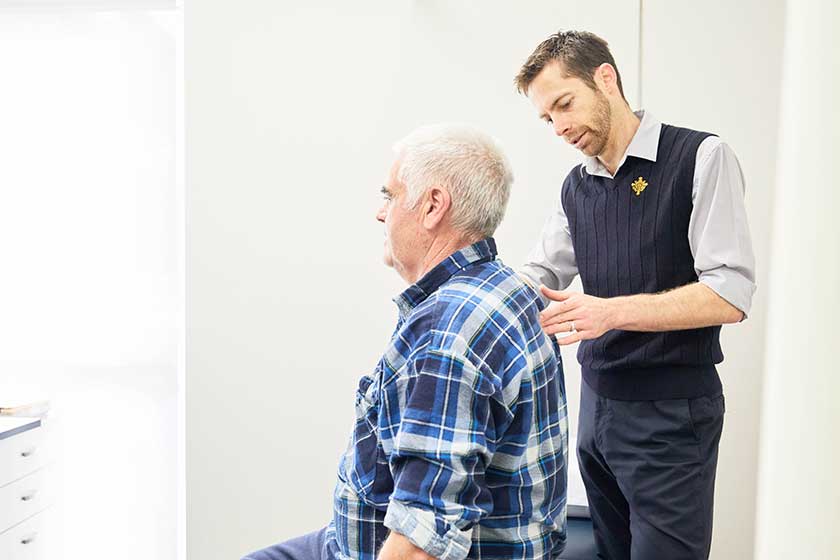Be patient
The aim of knee replacement surgery is to reduce your pain and increase your mobility in the knee, but it is important to remember that this can take time.
We will get you up and walking quickly after surgery, and your physiotherapist will guide you through a series of exercises to improve the strength and mobility in and around your knee.
Follow your physiotherapist's guidance and don't try to do too much too soon, otherwise your knee could become inflamed and your recovery could take longer.
Use your supports
Walking aids are there for a reason, so remember to use them to help you move around.
You will be provided a walking frame or crutches to help take the weight off your knee and aid with balance, while the muscles recover and pain subsides.
Use these as directed as you gradually start to put all of your weight on your knee and build up your strength.
Don't play high impact sports
After surgery, even if your pain and swelling are under control, don't try to play high impact sports or perform activities which involve regular twisting.
I suggest exercises such as walking, hydrotherapy, and cycling as they help you keep fit and rebuild your muscles without too much impact.
Don't ignore your pain
Pain is our body's way of telling us something is wrong. Your doctor will have provided you a script for pain medications to help control your pain.
If you are experiencing pain, remember to take these medications. You can gradually reduce these as your pain lessens. If you have any concerns, make an appointment with your GP or your specialist to discuss.
Similarly if you notice a change in your incision, particularly increased redness, heat or discharge, these maybe signs of infection and I recommend you speak to your specialist or your GP for further advice.
Do give yourself extra time at the airport
There is every chance that the implants in your knee will set off airport metal detectors. Make sure you let the security staff at airports know you have had a knee replacement, and you may be able to go through a full-body scanner instead.

